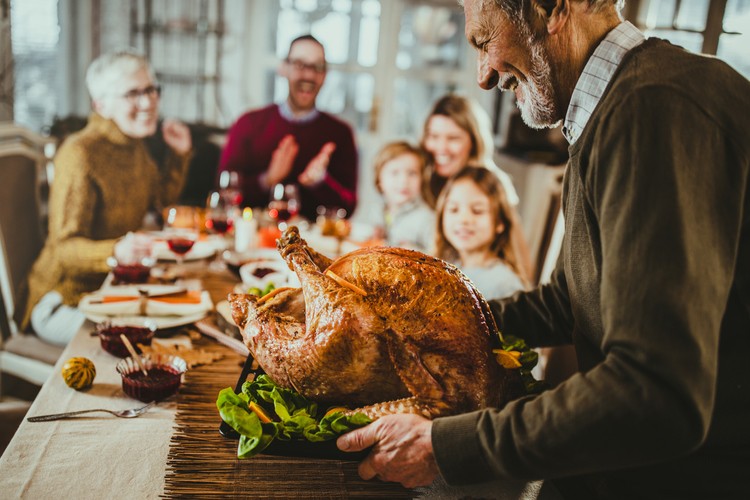Thanksgiving Favorites: A List of Foods Restricted Around the World
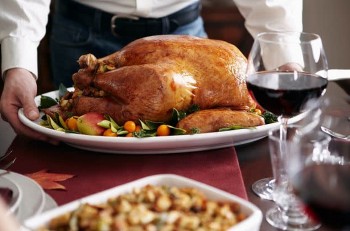 Why a Popular Thanksgiving Dinner Staple Is Banned in Europe and Japan Why a Popular Thanksgiving Dinner Staple Is Banned in Europe and Japan |
Thanksgiving is a beloved American holiday, celebrated with family gatherings and a feast that includes classic dishes like turkey, stuffing, and pumpkin pie. However, many foods or ingredients commonly found on a Thanksgiving table in the United States are restricted or outright banned in various parts of the world due to health concerns. These restrictions shed light on global differences in food safety standards and provide an opportunity to rethink some traditional recipes.
Here’s a detailed list of Thanksgiving foods or ingredients and the reasons they face restrictions abroad.
Rethinking Thanksgiving TraditionsAlthough these restrictions may not apply in the U.S., they provide an opportunity to reconsider the ingredients in traditional Thanksgiving dishes. Homemade alternatives not only eliminate harmful additives but also enhance flavor and allow for greater control over nutritional content. |
1. Processed Cranberry Sauce
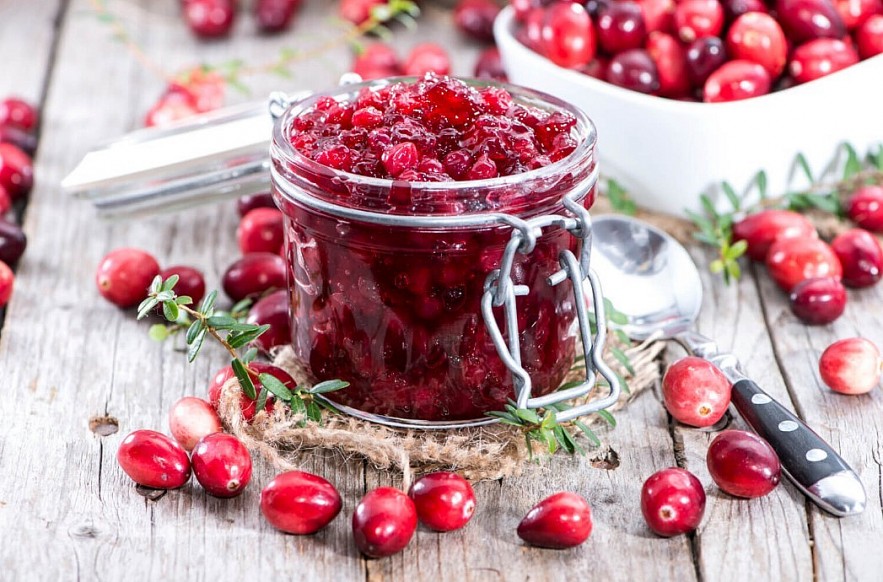 |
| Processed Cranberry Sauce |
- Ingredient of Concern: Red Dye No. 40
- Banned In: Austria, Norway, and parts of the European Union
- Why: Red Dye No. 40 is an artificial coloring linked to hyperactivity in children and potential carcinogenic effects. While permitted in the U.S., the EU requires warning labels on products containing this dye.
Alternative: Make homemade cranberry sauce using fresh cranberries, natural sweeteners like honey, and a touch of orange zest. This avoids artificial dyes while enhancing flavor and nutritional value.
2. Instant Mashed Potatoes
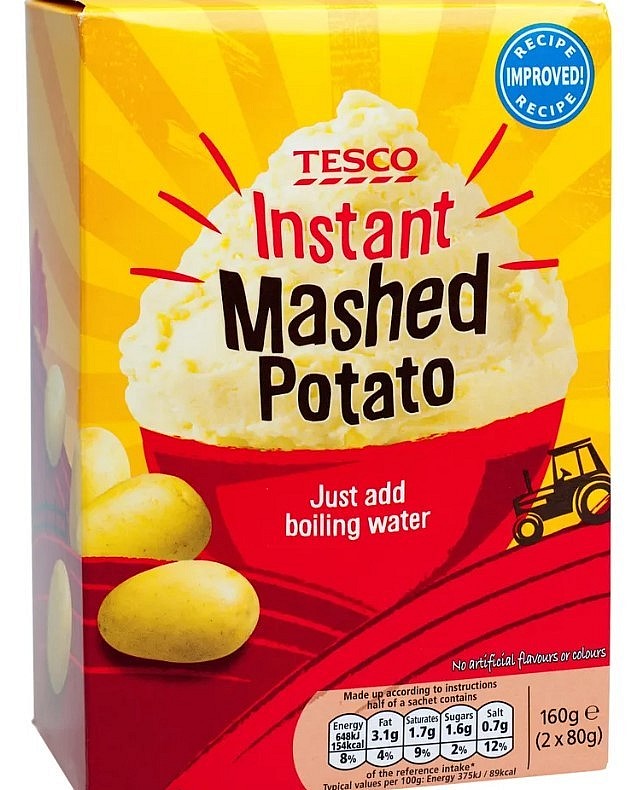 |
| Instant Mashed Potatoes |
- Ingredient of Concern: Partially Hydrogenated Oils (Trans Fats)
- Banned In: European Union, Switzerland, and some U.S. states like New York and California
- Why: Trans fats are linked to heart disease, obesity, and other chronic illnesses. Despite their ban in many regions, some processed mashed potato mixes in the U.S. still contain small amounts of trans fats.
Alternative: Use fresh potatoes, boiled and mashed with butter, cream, and your choice of seasonings. Not only does this taste better, but it also eliminates harmful additives.
3. Canned Pumpkin Pie Filling
- Ingredient of Concern: Bisphenol A (BPA)
- Banned In: European Union, Canada, and Japan (in baby products and some food packaging)
- Why: BPA, found in the linings of cans, can leach into food and disrupt hormone regulation, potentially leading to reproductive and developmental problems.
Alternative: Choose BPA-free canned options or prepare your filling from fresh pumpkins roasted and blended with spices.
4. Pre-Packaged Dinner Rolls
- Ingredient of Concern: Azodicarbonamide (ADA)
- Banned In: European Union, Australia, and Singapore
- Why: ADA, used as a dough conditioner, is classified as a potential carcinogen and can cause respiratory issues in workers exposed to it during manufacturing. Singapore imposes strict fines for its use.
Alternative: Bake your own dinner rolls or buy fresh bread from local bakeries that avoid artificial conditioners.
5. Processed Turkey (Pre-Brined or Injected)
- Ingredient of Concern: Sodium Nitrates and Nitrites
- Banned In: European Union (in some forms) and subject to strict limits in Canada
- Why: These preservatives, used to maintain color and prolong shelf life, are linked to an increased risk of colorectal cancer. When cooked at high heat, they can form harmful compounds called nitrosamines.
Alternative: Purchase a fresh, unprocessed turkey and brine it yourself using natural ingredients like salt, sugar, and herbs.
6. Sweet Potato Casserole with Marshmallows
- Ingredient of Concern: Blue Dye No. 2 and High Fructose Corn Syrup (HFCS)
- Banned In: HFCS is restricted in the European Union, and Blue Dye No. 2 is banned in Norway, Austria, and Finland.
- Why: HFCS is linked to obesity, diabetes, and metabolic disorders, while Blue Dye No. 2 is associated with hyperactivity and potential carcinogenicity.
Alternative: Replace marshmallows with toasted pecans or make your own marshmallow topping using natural sweeteners and no artificial colors.
7. Green Bean Casserole (Canned Soup Versions)
- Ingredient of Concern: Monosodium Glutamate (MSG)
- Banned In: Restricted in some Asian and European countries
- Why: MSG is a flavor enhancer that can cause adverse reactions in sensitive individuals, including headaches and nausea.
Alternative: Make a fresh mushroom cream sauce with onions, garlic, and real cream to replace canned soups.
8. Soda and Sweetened Beverages
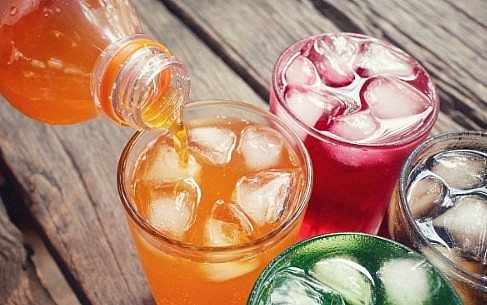 |
| Soda and Sweetened Beverages |
- Ingredient of Concern: Brominated Vegetable Oil (BVO)
- Banned In: European Union, Japan, and India
- Why: BVO, used to stabilize citrus flavors in sodas, has been linked to thyroid issues and neurological problems.
Alternative: Offer sparkling water infused with fresh fruit or serve homemade juices and teas to complement your Thanksgiving meal.
9. Gravy Mixes
- Ingredient of Concern: Propyl Gallate
- Banned In: European Union and parts of Asia
- Why: This preservative, used to prevent fats from spoiling, is linked to potential carcinogenic effects and hormonal disruptions.
Alternative: Make your own gravy using turkey drippings, flour, and natural seasonings. This not only tastes better but also avoids artificial additives.
10. Non-Dairy Whipped Topping
- Ingredient of Concern: Carrageenan
- Banned In: European Union (in infant formula)
- Why: Carrageenan, a thickening agent, has been linked to gastrointestinal inflammation and possible carcinogenic effects in animal studies.
Alternative: Use real whipped cream made from heavy cream or prepare a dairy-free version using chilled coconut cream.
Global Differences in Food Safety StandardsThe restrictions on these foods highlight the stark contrast in food safety standards across countries. While the United States Food and Drug Administration (FDA) allows these additives with regulated limits, other regions like the European Union and Japan adopt a precautionary approach, banning substances with even minimal links to health risks. This divide often stems from cultural and regulatory priorities. In the U.S., economic factors and reliance on industry-backed studies sometimes take precedence. Meanwhile, Europe and Japan prioritize public health, opting to err on the side of caution. |
Conclusion
Thanksgiving is a time to celebrate gratitude and togetherness, but it’s also a chance to reflect on the food we consume. By understanding the global restrictions on common Thanksgiving ingredients, we can make informed choices that prioritize health and safety. Whether it’s swapping canned cranberry sauce for a fresh recipe or baking your own dinner rolls, small changes can make a big difference in creating a safer, more wholesome holiday feast.
FAQs: Foods and Ingredients in Thanksgiving Dinners Facing Global Restrictions
1. Why are some Thanksgiving foods banned in other countries but not in the U.S.?
The U.S. Food and Drug Administration (FDA) permits certain additives like potassium bromate and BHA under regulated limits, whereas countries like those in the European Union and Japan adopt a precautionary approach, banning substances with potential health risks even if evidence is inconclusive.
2. Is it safe to consume these restricted ingredients in moderation?
While small amounts of these additives are generally considered safe by the FDA, long-term exposure or cumulative effects may pose risks. Opting for natural, additive-free alternatives is a safer choice.
3. Are there brands in the U.S. that avoid these restricted additives?
Yes. Many brands, such as Whole Foods 365, Simple Mills, and Bob’s Red Mill, offer clean-label products without controversial additives. Checking ingredient labels can help you identify safer options.
4. Can I recreate traditional Thanksgiving dishes without harmful additives?
Absolutely! Many Thanksgiving staples, like cranberry sauce, gravy, and stuffing, can be made from scratch using fresh, natural ingredients. Homemade dishes not only taste better but also avoid processed ingredients linked to health concerns.
5. How can I find out if an ingredient is banned in other countries?
Check food safety regulations from reputable sources like the European Food Safety Authority (EFSA) or Japan’s Ministry of Health. Online databases or consumer advocacy groups like the Environmental Working Group (EWG) also provide detailed information.
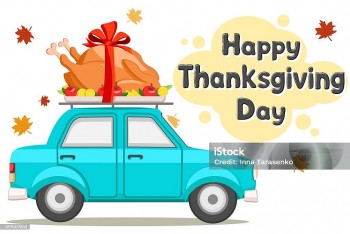 Top 10 low-cost travel tips for Thanksgiving Day 2024 Top 10 low-cost travel tips for Thanksgiving Day 2024 Thanksgiving is a time for gratitude, family, and travel. However, with millions on the move, travel costs can skyrocket. |
 Happy Thanksgiving: Top 100 Wishes, Messages, and Quotes to Share Happy Thanksgiving: Top 100 Wishes, Messages, and Quotes to Share Thanksgiving is a time to gather with loved ones, reflect on blessings, and express gratitude. Whether you're sending a heartfelt message to family, friends, or ... |
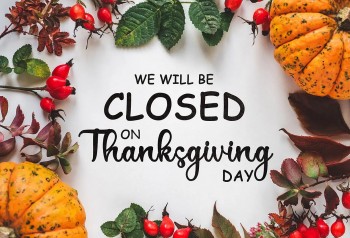 Thanksgiving Day 2024: Full List of Big Retailers Closing Their Doors Thanksgiving Day 2024: Full List of Big Retailers Closing Their Doors Below is a comprehensive list of major retailers that will be closed, along with their plans for reopening on Black Friday. |

